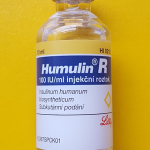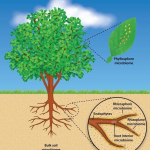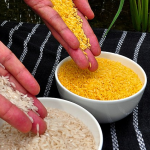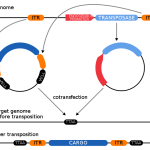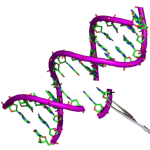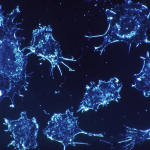Over millennia, there has been a seamless continuum of technologies for genetic modification of plants, animals, and microorganisms, with progressive improvements in precision and predictability – a fact that seems to have escaped the notice of EU politicians and regulators.
Biomedicine & Biotech
In a recent radio conversation with John Batchelor on CBS Eye on the World, we discussed plants' need for nitrogen, the use of fertilizers, and the potential for genetic engineering to maintain agricultural productivity and reduce detrimental environmental impact.
This article may sound stupid (and for good reason), but it's actually an interesting lesson in chemistry and enzymology. Will you dismiss it outright as another example of another moronic Bloom offering, or wonder why some simple chemistry can explain why pee is yellow and poop is brown? I suggest the latter. Makes for good bathroom reading.
Research to find a vaccine to prevent norovirus infection has been going on forever, with little to show for it. But a new study uses a novel approach with llama-derived (yes, you read that correctly) antibodies called nanobodies. I hope they get over the "hump." (1)
Regulators are supposed to abide by the “bargain” that society has made with them: Civil servants are granted lifetime tenure and are protected from political pressure and retaliation, in return for which they are supposed to make decisions based solely on the public interest. But, often, they do not.
Microbiomes are the collective and highly personal assortment of microorganisms that live in, on, and around us. If genetically modified effectively, these "black boxes" may help us cure cancer, understand how we can adapt to rising temperatures, play a role in mental health, and improve nutrition in children.
Greenpeace's longstanding, unwarranted, and vicious opposition to vitamin A-fortified rice has led to tens of thousands of deaths.
For decades, excessive, unscientific regulation has slowed innovation using molecular genetic engineering. Policymakers must awaken to the realization that regulations based on pseudoscience or nescience are destructive and regressive. Tremendous innovations await, if only we have the wisdom to permit them to be developed.
Indian activist Vandana Shiva opposes the tools and practices of modern agriculture and science and advocates regressive policies that cause widespread malnourishment, famine, and death to the very people she claims to champion. And she's no friend of the environment, either. She should never be given a podium.
For two decades, the Pontifical Academy of Sciences, which advises the Pope on scientific issues, has made wise observations about the importance of molecular techniques for genetic modification and the most appropriate approaches to regulating them. It's a cardinal sin that most of the world has ignored them.
Russia's decades-old propaganda machine is vast and vicious. Its goal is to damage the health and prosperity of the country's adversaries, especially the United States.
A new study in the journal Nature examines what happens when pancreatic cancer cells are deprived of glucose, their normal fuel. Do the cells stop growing? No, they adapt by switching "fuels" to a different, ubiquitous biomolecule: uridine. The authors suggest that this discovery could lead to new treatments for this deadly cancer.




